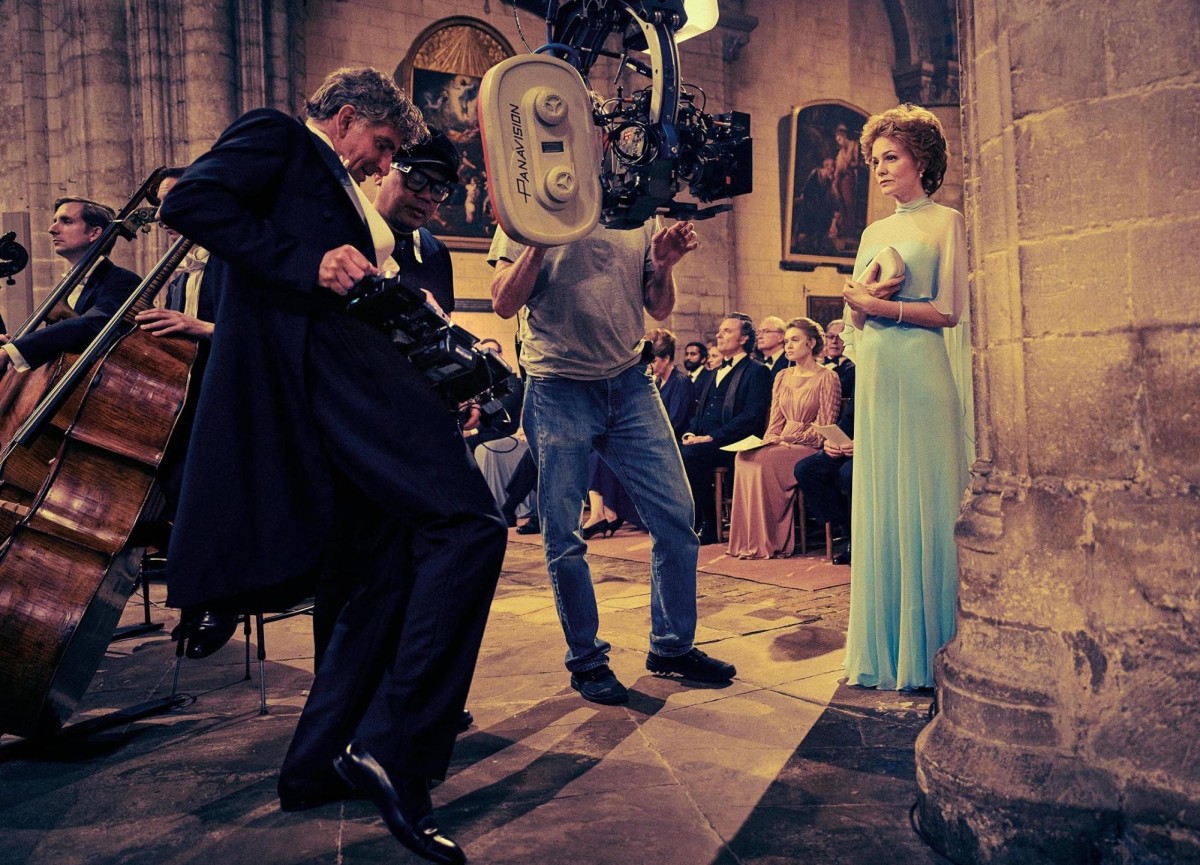Hollywood favorite Bradley Cooper stars as American conductor and composer Leonard Bernstein in his sophomore directorial effort, “Maestro.” With career-best performances from Cooper and co-star Carey Mulligan, stunning production design and a sweeping score composed by Bernstein himself, the film is a delightful examination of a couple’s relationship tested by the pressures of fame.
“Maestro” takes us through Bernstein’s adult life, kicking off in 1943 when he is asked to step in, without rehearsal, to conduct the New York Philharmonic. Bernstein gets up from his bed and runs through his apartment straight into Carnegie Hall — one of the many clever editing shots in the film. We only see the aftermath of the concert, with Bernstein flashing an animated smile at the audience. A star has just been born, and it is him.
And, as if things couldn’t get any better, Lenny attends a party thrown by his sister Shirley (Sarah Silverman) and meets Chilean actress Felicia Montealegre (Carey Mulligan). There is instant chemistry when the two meet, but as the years go on, their relationship is tested — Bernstein struggles to balance his obsession with music with his love life. With a non-linear storytelling structure, “Maestro” feels less like a biopic and more like a scrapbook of selective memories of the Bernsteins’ lives, showing career highs mixed with the trials that come with a domestic relationship.
With awards season coming up at the end of the year comes a slew of Oscar-bait biopics. While most of these films follow the same formulaic structure, “Maestro” challenges the genre’s conventions. The film is not just Bernstein’s story, but also an examination of a marriage going through trials and tribulations. Despite Bernstein being the central character of the film, Mulligan’s performance as Montealegre is engrossing. Felicia is not a passive participant in Lenny’s life — she is an equal partner in her marriage and the emotional glue that tries to keep Lenny grounded. In her best performance ever, Mulligan expertly balances Felicia’s love for Lenny and the frustration of being in love with a man whose personal and professional lives blend together. Even when Lenny shines onstage, Felicia is always on the sidelines, her husband’s biggest supporter.
Like his 2018 directorial debut, “A Star Is Born,” Cooper’s second feature also demonstrates his passion for filmmaking and dedication. From devoting six years to learning conducting to spending more than five hours a day in a makeup chair, Cooper puts his all into portraying Bernstein and celebrating his legacy. “Maestro” demonstrates the perfect filmmaker-subject pairing, as Bernstein’s mammoth ambitions parallel Cooper’s own elevated aspirations as a performer. Having started his career as a comedy actor, Cooper continues to push his own artistic limits, working both in front of and behind the camera.
In his writing, direction and acting, Cooper demonstrates how Bernstein was the most alive when he was involved in music, whether as a composer, conductor or educator. The most breathtaking sequence in the film is when Bernstein conducts a large choir and band in Gustav Mahler’s “Symphony No. 2” in a vast cathedral. The soundtrack of “Maestro” is made up almost exclusively of Bernstein’s music, rooting the film in Bernstein’s musical genius and legacy.
With lush visuals and music that keeps you engaged throughout, the film’s greatest strength are its central performances that give it its emotional core. “Maestro” is not only an entertaining biopic, it is a touching tribute to one of the American greats and the woman who stood beside him.
“Maestro” premieres on Netflix on Dec. 20 and is now showing in select theaters.
Contact Madeline Kane at [email protected].


























































































































































